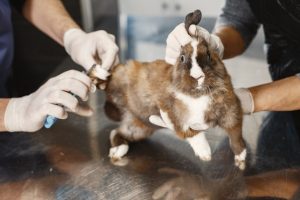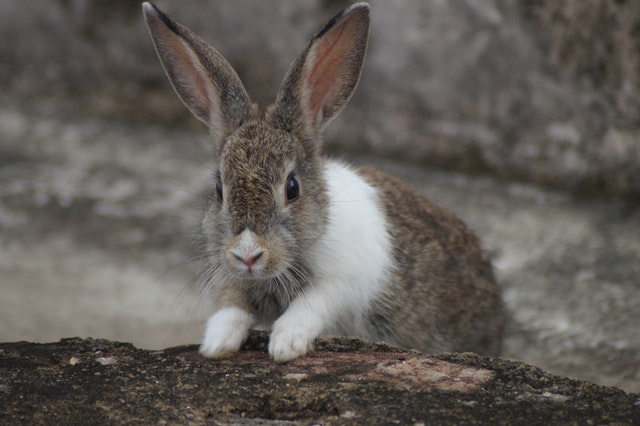
Humans and animals both develop illnesses, infections or diseases that may affect how their balance is. Sometimes, this issue leads to the tilting on the head. Rabbits will experience ear infections or problems inside the brain that leads to these health problems. When a rabbit has a head tilt, they will likely also experience loss of balance, or their eyes may seem to be twitching. Twitching is involuntary muscle movements.
Why does this happen in rabbits? What can be done about it? Head tilting is also called Torticollis. It is hard to watch when your rabbit ends up with a head tilt. So, let’s learn what some of the causes could be, what you can do about it, and what the Vet may be able to do.
Causes
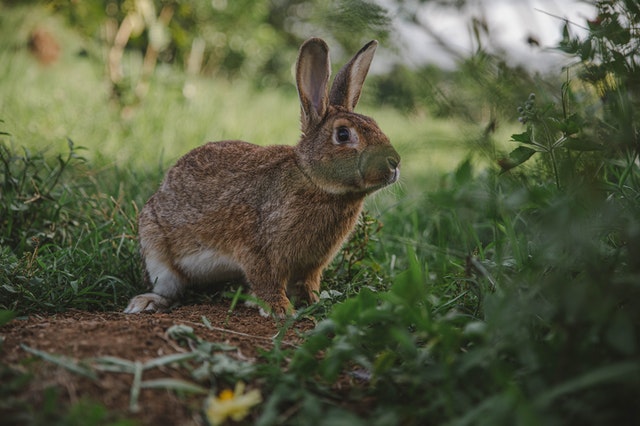
The most common issue would be an infection. This would happen in the middle or inner ear. An inner ear infection will generally develop if an outer or middle ear infection has gone undetected and therefore untreated. The infection made its way further into the ear. Middle ear infections are seldom successful in a cure, the vet can put the rabbit on a long term medication which will help in many incidents of curing the infection.
The head tilt could have been caused by a stroke. With a stroke, there will generally be other noticeable signs. Such as a limb that appears weak, drooping on one side of the face or it is possible that your rabbit will only be able to move in a circle. Trauma to the head, brain could be the cause of a head tilt. Did the rabbit fall, did it receive a blow to the head? For a rabbit, trauma to the head or brain could even be the result of a panic reaction.
A tumor in the brain, ear or neck could be the cause of a head tilt. A contraction of a cervical muscle can lead to a head tilt. Once the muscle is relaxed, the head tilt may go away. Encephalitozoonosis is a parasite that can cause a brain disease or cysts that can paralysis in different areas of the rabbit’s body.
Cerebral larva, roundworms could be picked up by the rabbit who has eaten grass or har where another affected animal has left feces or urination. When the larvae hatch in the rabbit, they will move towards the brain. Intoxication can develop in a rabbit who has ingested lead paint or a toxic plant such as the wooly pod milkweed plant.
As you can see, there are many possible causes that can lead to a head tilt in rabbits. Finding the treatment that your rabbit needs will begin with a visit to the Vet. A visit to the vet should not be held off. It is imperative to determine what the cause is from. The vet will be able to give antibiotics, or other medication in some instances. The Vet and his staff will be able to run tests, do X-rays and other visual tests to determine what is causing this. Treatment options will depend on the cause.
Caring For Your Rabbit with a Head Tilt
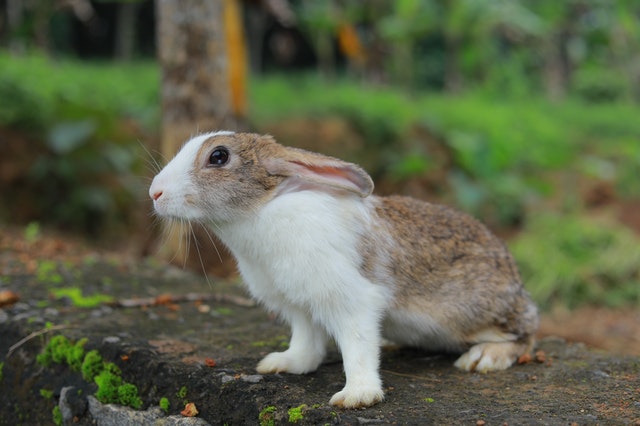
There are many ways to care for your rabbit while he or she is afflicted with the head tilt. While the determination of the cause is pending, you will need to keep your rabbit comfortable. It is likely that they will not be able to stand properly, move around without falling over, and they will struggle trying to cope with this new situation. The first and most important action you should take is to make sure they are comfortable. Place extra padding or an extra blanket in their bed area. Keep their food and water closer to them so they do not struggle to reach it.
Handle them with extreme care, even more so than normal. This is a stressful situation for your rabbit. All movements, any change in routine is disruptive even more now. Make every attempt to keep them calm. Keep them in a familiar area that is quiet and stress free. If the rabbit’s equilibrium is off, try to pick them up as little as possible. The movement is harder on them and they will panic, which could lead to being injured.
When a rabbit has a tilting head, it may lead to the refusal of eating, drinking water, grooming themselves, weakness and further infection. Depending on what the cause is, it could lead to death. This is why we are trying to keep you informed. Stay on routine medical visits with the vet. Right when you notice that there is an issue, even if it just looks very slightly tilted, get in touch with your vet immediately! There is no way to know the exact cause unless the vet is able to examine the rabbit and do testing. In other words, if this is a disease causing the problem, it could be life threatening.
A rabbit with a head tilt will appear to roll, as they will be unable to stand properly. They may have one side of the face that droops lower, or one eye that drops. This means the one eye will appear to look at the floor at all times. The rabbit will be unable to blink that eye, and you will need to put ointment in the eye to keep it moist. When you pick up your rabbit, you will need to hold him as close to your body as possible. This will help the rabbit feel stable. While in his or her cage, they may tend to lean against the wall of the cage, they really have no choice.
Your rabbit will appear to be confused or in a daze, they will be unsure of themself and their footing. The rabbit may shake their head and at least one ear quite a lot. This means they are trying to shake it off, but are not succeeding. When the rabbit stops eating, you will need a syringe to feed him. Just to get some nutrition into him. There are many suggestions for food that can be given. Your vet will be the first to suggest how to feed, what to feed in order to keep your rabbit’s digestion working during this time.
The Vet
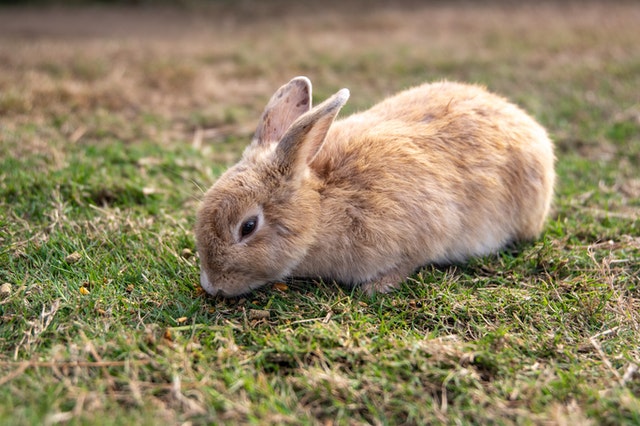
Once you get to the vet, the veterinarian will begin an initial examination. He or she will rule out as many of the possible causes as is possible. Be prepared for a bill, though. If the initial exam does not show a cause, the vet will then proceed to sedate the rabbit and get X-rays done. He may also decide to do an MRI while the rabbit is sedated.
If it appears to be an ear infection, the vet will then need to determine how far the infection has progressed. The rabbit would need to be sedated again, (preferably a separate appointment, or all this done at the same appointment) so that the vet can flush out the ear canal and take a sample of the infection to determine the root cause.
The veterinarian will be able to prescribe an antibiotic and anti-inflammatory medicine that will help with pain in the rabbit. Your bunny may need long term antibiotic treatment.
If the head tilt appears to be from a muscle convulsing, physiotherapy, cold laser therapy and pain relief may be given.
Decisions
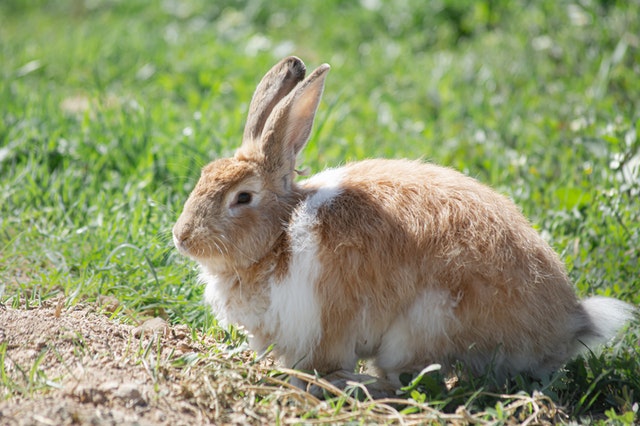
When the veterinarian has done everything possible. He may contact other vets, specialists or others that he trusts to see what their suggestions would be. What may very likely happen if this is an infection, is that the infection has spread much too quickly and even with antibiotic treatment, anti-inflammatory medication, there is nothing that is helping. Your vet will want to have a sit down conversation with you.
In most cases, the head can be treated. Yet, many times cannot. There have been many cases where the treatment seems to be successful, the rabbit may have another medical issue that deters gaining health back. One rabbit, Blackberry, a three year old Lop eared rabbit, developed an ear infection. He was treated long-term with antibiotics. He went through a few different rough patches where he had to be fed with a syringe.
One day he had a stroke, Blackberry still tried to fight through all the hardships for a month. He was beautifully, and lovingly cared for by his family, but another stroke took his life. The stroke stemmed from the original ear infection. It is never possible to tell what will work on a rabbit or will not work.
Another rabbit with an ear infection may come out of it quickly and be right back to his hoppy self. It is believed though, that when a rabbit develops a head tilt, it will stay with them even when and after the cause has been determined and remedied. The head tilt may be less severe, and the rabbit will become accustomed to it, but will never be rid of it.





